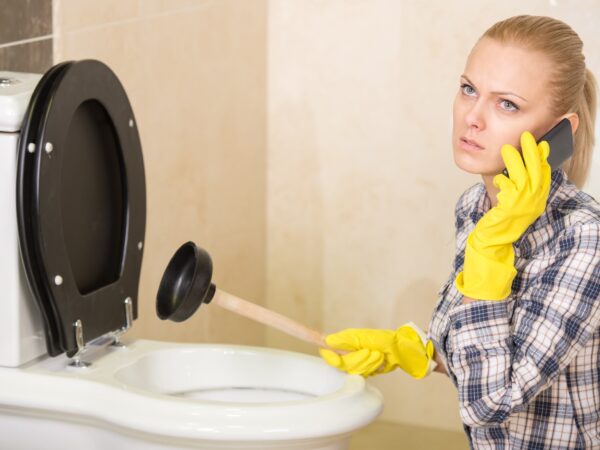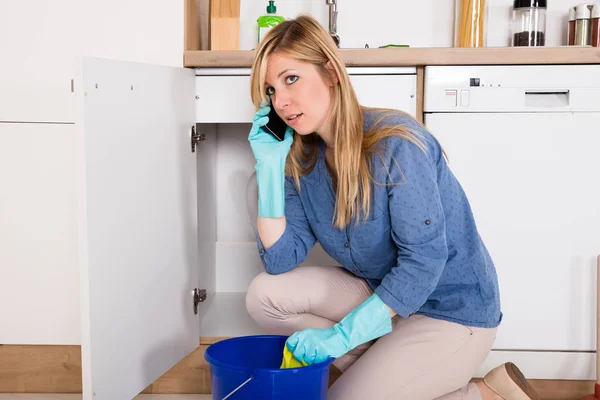We have encountered this article involving What to Do While Waiting for an Emergency Plumber below on the net and decided it made perfect sense to write about it with you on my blog.

Pipes emergency situations can strike at any moment, creating tension and possible damage to your home. Whether it's a ruptured pipe, a clogged drainpipe, or a leaking tap, understanding how to take care of the situation till an expert plumber shows up can save you from more problems. This write-up offers crucial emergency pipes suggestions to aid you mitigate damage and reclaim control during a pipes crisis.
Switch off the Supply Of Water
The very first step in any pipes emergency situation is to shut down the water supply. For localized problems, such as a dripping tap or toilet, turn off the valve near the fixture. In the case of a significant leakage or ruptured pipe, locate your home's primary water shut-off shutoff and transform it off quickly. Recognizing the area of these valves beforehand can save important time during an emergency situation.
Shut down Your Hot Water Heater
In particular emergency situations, such as a burst pipe, it's wise to shut off your water heater. This avoids overheating or damage to the system when water quits streaming. Shut off the power supply to the hot water heater (electrical or gas) and allow it cool off to prevent prospective dangers.
Briefly Quit a Ruptured Pipe
A burst pipe can result in significant water damage in mins. To minimize the concern:
Call a professional plumbing right away to attend to the issue permanently.
Have an Emergency Plumbing Kit
Prepare a basic plumbing emergency kit to handle minor concerns effectively. Your package needs to consist of:
Having these devices accessible can make a substantial distinction in your capability to handle emergencies.
Unclog Drains Securely.
A clogged up drainpipe can be a discouraging and untidy issue. Here's just how to tackle it:.
If these techniques don't function, prevent using too much force, as it may aggravate the obstruction.
Take Care Of Overflowing Toilets.
An overruning toilet can create instant disorder. Right here's what you should do:.
Address Little Leakages with Temporary Repairs.
Little leakages can promptly become considerable issues if left uncontrolled. Make use of these temporary repairs up until expert aid arrives:.
While these fixes aren't permanent, they can help minimize water loss and damage.
Deal With Frozen Pipeline Thoroughly.
In chillier climates, frozen pipes are a common emergency. If you suspect a frozen pipe:.
Know When to Call an Expert.
While quick fixes can assist temporarily, particular pipes problems need immediate professional focus. Call a plumbing professional if:.
Without delay calling a professional guarantees the concern is fixed correctly and protects against more problems.
Prevent More Damages.
Taking quick action to lessen damage can conserve you time and money in the future. Right here's just how:.
Verdict.
Plumbing emergency situations can be overwhelming, however with the right understanding and devices, you can manage the circumstance effectively up until aid arrives. By switching off the water supply, attending to tiny leakages, and using momentary solutions, you can lessen damage and keep your home safe. Bear in mind, these suggestions are short-lived solutions; constantly speak with an accredited plumber to deal with the origin of the problem. Prep work and quick reasoning are your ideal allies in any plumbing emergency.
8 Helpful Tips for Managing Plumbing Emergencies at Home
If your plumbing system hasn’t failed once, wait for it because almost everyone has a story to tell. Sometimes, it could be simple emergencies such as a leaking pipe, a blocked cistern, or even a big burst pipe. In situations like this, you need to have some handy tips to save you some money and from possible damages.
Take care of minor issues early.
Sometimes, you could have avoided an emergency by taking proactive measures while it was still early. Some major plumbing emergencies can be a result of an ignored minor issue. We recommend that you have items like plumbing tapes and other related items. A plumbing tape can allow you to manage minor leaks before the plumber arrives.
Cut off the water supply.
This tip is essential in almost any type of leakage problem. For problems like minor leakages in the toilet or kitchen, turn off the supply that takes water to the affected pipes. If the leakage is a major pipe, you must shut off the supply valve to the entire building. This will help you avoid flooding your home and neighbors if you share a flat.
Know your plumbing system
Folks typically move into a new apartment without understanding the water supply around the building. This can prove disastrous if a water emergency arises and the plumber is far away. The previous tip will prove useless if you don’t practice this one. More importantly, know where your water shut-off valve is located – you’ll need that knowledge to prevent potential home floods.
Have some common handy tools
There are lots of plumbing emergencies that you can handle without hiring a plumber. That’s why you must keep some tools available always. Some tools that you can use to fix simple plumbing emergencies easily include plumbing tapes, screwdrivers, thread seal tapes, plungers, pliers, tape measures, and rubber gloves.
Insulate your pipes from cold
You’ll save yourself from many plumbing expenses if you protect your water pipes from the cold. This is because of the harmful effects that cold weather can have on your pipes. During winter, your pipes can burst from being overly expected to freezing temperatures. So, make sure insulators are there to keep the pipes working correctly.
Avoid practices that will clog your toilet.
Many people indulge in practices that can damage the plumbing system of the entire building. One of these is when they use their toilet to dispose-off garbage. They flush all kinds of things, such as paper towels, bandages, hairs, female sanitary products, etc., down the toilet. This will block your toilet in the long run, incurring unnecessary expenditures. Dump such waste in the trash instead.
Check your dials regularly.
Sometimes, there could be leakages in your home without noticing them in time. So, constantly monitor your water meter dial. If the dial is reading when there is nobody using water, this is an indicator that there is leaking. Check for leaks immediately. Call a plumber as soon as possible if you can’t find any.
https://www.constructionplacements.com/8-helpful-tips-for-managing-plumbing-emergencies-at-home/

Hopefully you liked our topic about . Thanks a lot for spending some time to read our posting. Sharing is caring. Helping others is fun. I recognize the value of your readership.
Apply Now